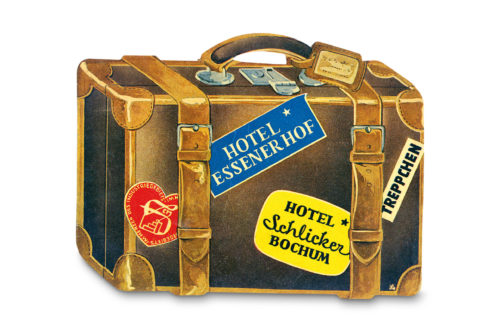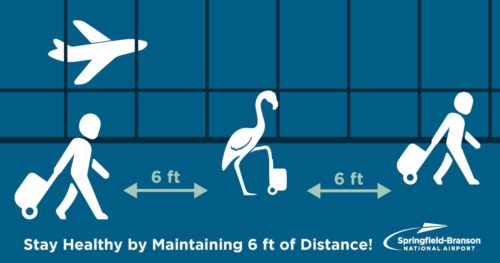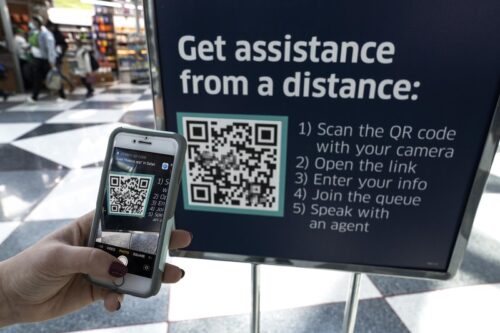
Dreaming about travel? Us too. But how will our journeys be changed by the pandemic?
(This is a slightly different version of a story we prepared for NBC News.)
Sanitizing stations, “stand here, not there” floor stickers, and cotton swabs up the nose were not part of the travel experience before the COVID-19 pandemic.
But as travelers edge their way back into airports and hotels and onto airplanes, cruise ships, and ski slopes, they will be dealing will all that – and more.
But for how long? We asked some industry experts to tell us which new travel trends, technologies, and protocols they think will stick around.
Who will travel and what will they expect?
“Businesses are connecting with their customers virtually and leisure travelers are discovering the joys of staying local,” says Chekitan Dev, a professor at Cornell University’s School of Hotel Administration in the SC Johnson College of Business. “Many business travelers will lower their number of trips, and leisure travelers will shift from ‘hyper-global’ to ‘hyper-local’ travel for the foreseeable future.”
For well into 2021 travelers will be expected or required to wear masks and observe physical distancing. And airlines, airports, hotels, and cruise lines will be expected to continue making health, safety, and cleanliness a priority.
“People will look at a dirty rental car or bus or airport or airline cabin or hotel room and wonder, ‘Uh oh, am I putting myself at risk?’ says Henry Harteveldt, a travel industry analyst at Atmosphere Research Group. “Travelers will continue to hold travel brands’ feet to the fire to keep their facilities clean.”
Entertainment
Once we move past this pandemic “we’re going to have amnesia about some of this and likely go back doing many of the same things we used to do before,” says Devin Liddell, futures and design strategist with Seattle-based Teague global design consultancy.
Theme parks, museums, and other attractions will reopen, and Liddell says the best operators will retain systems put in place to orchestrate the flow of people. For example, “ski resorts that require reservations will likely create a better experience for everyone on the lift lines,” he says.
Hotels
Hotels will likely maintain flexible cancellation policies and keep in place the intensive protocols for cleaning guest rooms and public spaces.
But instead of housekeeping only upon request or not at all during a stay, “elective housekeeping will be more about providing guests with an easy ‘opt-out’ of housekeeping services,” says Bjorn Hanson, adjunct Professor at New York University’s Tisch Center of Hospitality.
Cruising
Most major cruise lines are maintaining – and extending – the voluntary suspensions of sailings until sometime in 2021.
When sailings resume there will be changes onboard.
“The buffet will move away from the more traditional self-serve approach toward a more crew-served style – something that lines have already said will likely be a more permanent change,” said Colleen McDaniel, Editor-in-Chief of Cruise Critic. And “changes to muster drills could also stick around beyond the pandemic. Rather than mass events that put all passengers in small spaces at once, we’ll continue to see this more self-driven.”
Airports

At airports, “the pandemic has dramatically accelerated the adoption of countless new technologies and protocols to keep people healthy and safe and streamline the entire air travel experience,” says Kevin Burke, president and CEO of Airports Council International-North America.
“Many of these changes will outlast COVID-19,” he adds.
Those technologies and protocols include sanitizing robots, restrooms that alert maintenance crews when cleaning is needed, contactless check-in, bag check and credential authentication, and the increased ability to order and pay for food or duty-free items from a mobile device and receive a contactless delivery anywhere inside the airport.
The current pandemic will change future airports as well.
“We plan to implement many public health procedures into the design of our new terminal building,” scheduled to open in 2023 said Christina Cassotis, CEO at Pittsburgh International Airport, “It will be the first post-pandemic terminal to open in the country that will be designed with these issues in mind.”
Materials in airports are going to change, too, says Luis Vidal, president and founding partner at Luis Vidal + Architects. “The use of new photocatalytic devices based on antibacterial, antiviral, and ‘autocleaning’ material, such as titanium dioxide, silver or copper, in high-use areas will become the norm.”
Airlines

Airlines will maintain stringent cleaning and sanitizing protocols. Generous rebooking and cancelation policies may stretch out for a while. But most airlines will soon stop blocking middle seats.
Coming back soon: the full range of in-flight services, especially at the front of the plane.
“The traveling public is not happy with the bare bones on-board experience right now,” says Harteveldt of Atmosphere Research. “They understand the need for limits, but people are saying they won’t accept paying for a premium experience and getting something that is subpar.”
Vaccines, Travel Corridors, and insurance

As the COVID-19 vaccine becomes available, it may become a ‘must-have’ for travelers.
The new normal for global travel may also include digital health passports displaying a traveler’s vaccine or negative test status and, by spring, travel corridors (also known as travel bubbles) that allow travel between countries with low COVID-19 infection rates, says Fiona Ashley, VP Product & Solution Marketing SAP Concur.
While there are some great fare deals being offered right now, as demand returns, so will higher prices. And going forward, travelers will likely need to factor in the added costs of COVID-19 tests and travel insurance.
“Travel insurance may become a non-negotiable as destinations continue to require medical insurance, and travel suppliers tighten their refund policies,” said Megan Moncrief Chief Marketing Officer of travel insurance comparison site Squaremouth
“The Covid-19 pandemic highlighted the vulnerability of the global travel industry. I think travelers will be more cautious about investing in expensive trips without insurance.”
Thanks for visiting Stuck at the Airport. Subscribe to get daily travel tidbits. And follow me on Twitter at @hbaskas and Instagram.